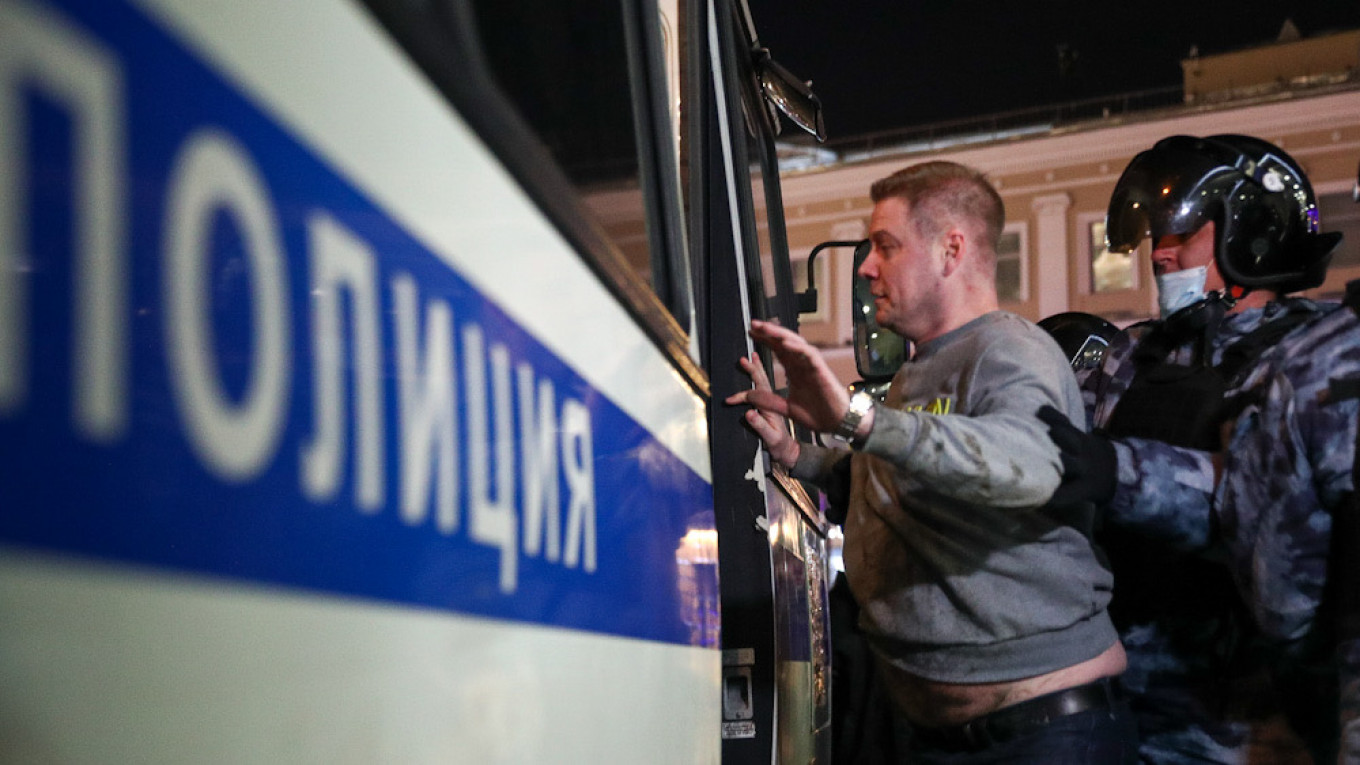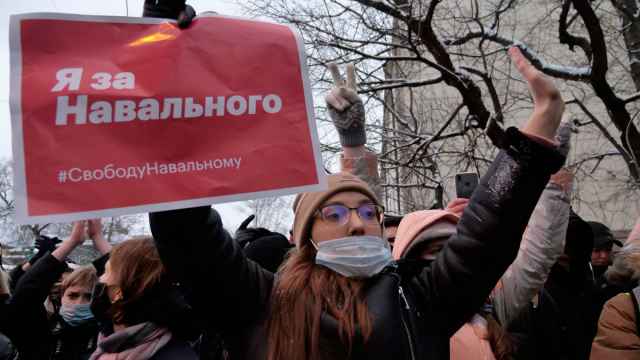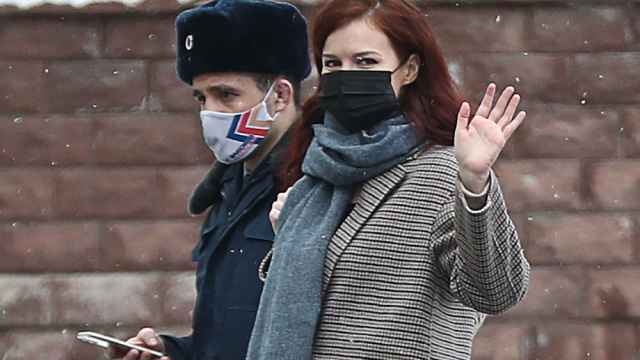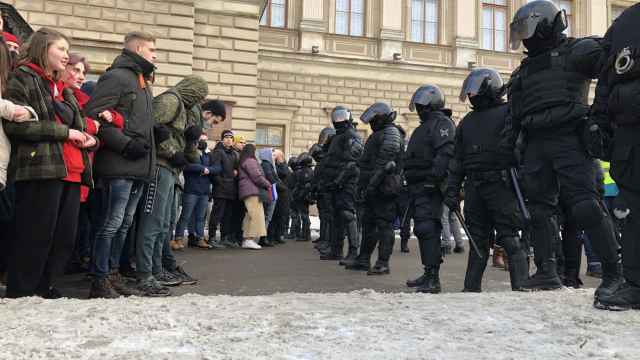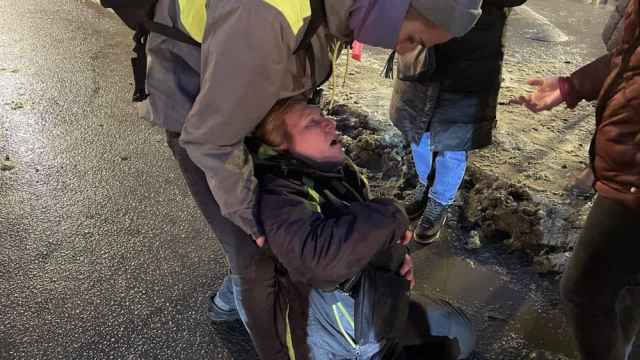Russian authorities have detained nearly 200 people in over two dozen cities in the week since protests in support of jailed Kremlin critic Alexei Navalny swept the country, an independent police monitor said Wednesday.
Police initially detained 1,800 people in 100 Russian cities on the day of the rallies last Wednesday that called for civilian doctors to examine Navalny, who had been on hunger strike for three weeks to demand proper medical care.
The OVD-Info police-monitoring website has tallied 178 additional detentions in 30 cities as of early Wednesday. Moscow accounts for nearly half with 84 people taken into custody, followed by 27 in Voronezh, 14 in Perm and 11 in the Far East city of Khabarovsk.
Law enforcement authorities have opened 183 administrative cases on violating protest rules, OVD-Info reported late Tuesday.
“The police’s most popular tactic, especially in Moscow, has become to wait out the ‘offenders’ and detain them when they enter or leave their home,” the monitor said.
At least two journalists were among those detained during the Moscow rallies. A total of six journalists have since either been detained or summoned for questioning after they covered or were seen by facial-recognition software in the vicinity of last Wednesday’s protest route.
The Kremlin on Tuesday linked those visits to an alleged incident involving an individual posing as a journalist at the rallies.
The detentions come ahead of a Moscow court’s expected ruling Thursday to blacklist Navalny’s Anti-Corruption Foundation (FBK) and his regional network as “extremist” organizations.
The move would bar Russia’s arguably most potent opposition force from operating mere months ahead of key legislative elections where the pro-Putin ruling party seeks to retain its supermajority despite historically low approval ratings.
The Navalny groups’ “extremist” designations would also put its members and supporters at risk of prison time.
A Message from The Moscow Times:
Dear readers,
We are facing unprecedented challenges. Russia's Prosecutor General's Office has designated The Moscow Times as an "undesirable" organization, criminalizing our work and putting our staff at risk of prosecution. This follows our earlier unjust labeling as a "foreign agent."
These actions are direct attempts to silence independent journalism in Russia. The authorities claim our work "discredits the decisions of the Russian leadership." We see things differently: we strive to provide accurate, unbiased reporting on Russia.
We, the journalists of The Moscow Times, refuse to be silenced. But to continue our work, we need your help.
Your support, no matter how small, makes a world of difference. If you can, please support us monthly starting from just $2. It's quick to set up, and every contribution makes a significant impact.
By supporting The Moscow Times, you're defending open, independent journalism in the face of repression. Thank you for standing with us.
Remind me later.


